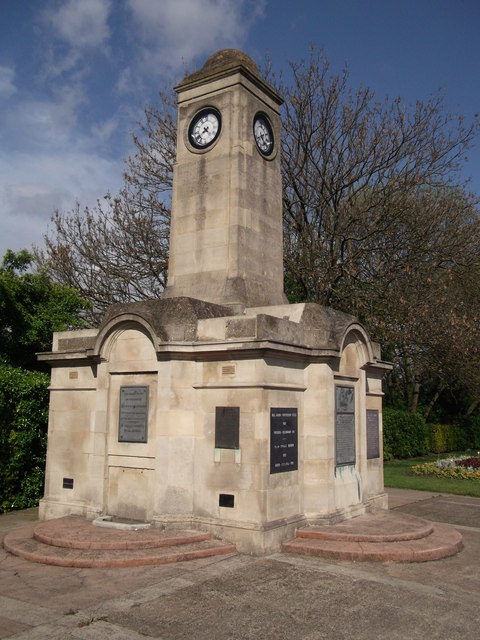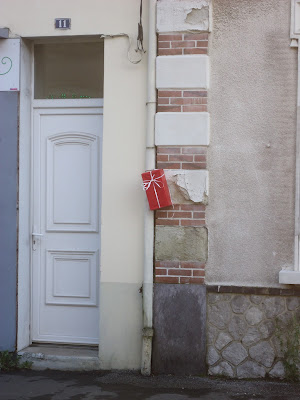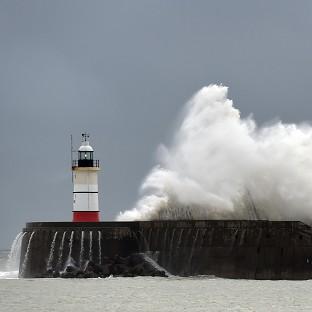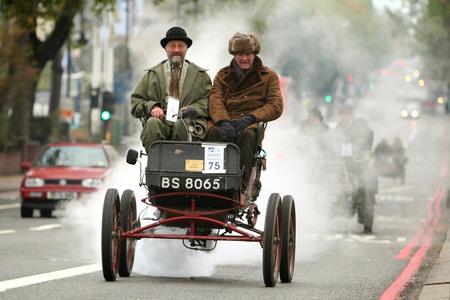On 21st October 1805, a British fleet commanded by Admiral Lord Nelson (he of the one eye and one arm) defeated a combined French and Spanish fleet off Cape Trafalgar, south-west Spain. Nelson flew his flag in HMS Victory, commander Captain Hardy.
Nelson: “Order the signal, Hardy."
Hardy: “Aye aye, sir"
Nelson: “Hold on, that's not what I dictated to Flags. What's the meaning of this?"
Hardy: “Sorry, sir.”
Nelson (reading aloud): “England experts every person to do his or her duty, regardless of race, gender, sexual orientation, religious persuasion or disability----what gobbledegook is this?”
Hardy: “Admiralty policy, I'm afraid, sir. We're an equal opportunities employer now. We had the devil's own job getting 'England' past the censors, lest it be considered racist.”
Nelson: “Gadzooks, Hardy. Hand me my pipe and tobacco.”
Hardy: “Sorry sir. All naval vessels have now been designated smoke-free working environments.”
Nelson: “In that case, break open the rum ration. Let us splice the main brace to steel the men before battle.”
Hardy: “The rum ration has been abolished, Admiral. It's part of the Government's policy on binge drinking.”
Nelson: “Good heavens, Hardy. I suppose we'd better get on with it. Full speed ahead.”
Hardy: “I think you'll find that there's a 4 knot speed limit in this stretch of water.”
Nelson: “Damn it man! We are on the eve of the greatest sea battle in history. We must advance with all dispatch.
Report from the crow's nest please.”
Hardy: “That won't be possible, sir.”
Nelson: “What?”
Hardy: “Health and Safety have closed the crow's nest, sir. No harness, and they said that rope ladders don't meet regulations. They won't let anyone up there until a proper scaffolding can be
erected.”
Nelson: “Then get me the ship's carpenter without delay, Hardy.”
Hardy: “He's busy knocking up a wheelchair access to the fo’c’sle, Admiral.”
Nelson: “Wheelchair access? I've never heard anything so absurd.”
Hardy: “Health and safety again, sir. We have to provide a barrier-free environment for the differently abled”
Nelson: “Differently abled? I've only one arm and one eye and 1 refuse even to hear mention of the word. I didn’t rise to the rank of Admiral by playing the disability card.”
Hardy: “Actually, sir you did. The Royal Navy is under represented in the areas of visual impairment and limb deficiency.”
Nelson: “Whatever next? Give me full sail. The salt spray beckons.”
Hardy: “A couple of problems there too, sir. Health and safety won't let the crew up the rigging without hard hats. And they don't want anyone breathing in too much salt - haven't you seen the
adverts'?| .
Nelson: “I've never heard such infamy. Break out the cannon and tell the men to stand by to engage the enemy.”
Hardy: “The men are a bit worried about shooting at anyone, Admiral.”
Nelson: “What? This is mutiny.”
Hardy: “lt's not that sir. lt's just that they're afraid of being charged with murder if they actually kill anyone. There's a couple of legal-aid lawyers on board, watching everyone like hawks.”
Nelson: “Then how are we to sink the Frenchies and the Spanish?”
Hardy: “Actually, sir, we're not.”
Nelson: “We’re not?”
Hardy: “No, sir. The French and the Spanish are our European partners now. According to the Common Fisheries Policy, we shouldn't even be in this stretch of water. We could get hit with a claim or compensation.”
Nelson: “But you must hate a Frenchman as you hate the devil.”
Hardy: “I wouldn't let the ship's diversity co-ordinator hear you saying that sir. You'll be up on disciplinary report.”
Nelson: “You must consider every man an enemy, who speaks ill of your King.”
Hardy: “Not any more, sir. We must be inclusive in this multicultural age. Now put on your Kevlar vest; it's the rules. It could save your life.”
Nelson: “Don't tell me - health and safety. Whatever happened to rum, sodomy and the lash?”
Hardy: “As I explained, sir, rum is off the menu! And there's a ban on corporal punishment.”
Nelson: “What about sodomy?”
Hardy: “I believe that is now legal, sir.”
Nelson : “In that case .......................kiss me, Hardy.”
























